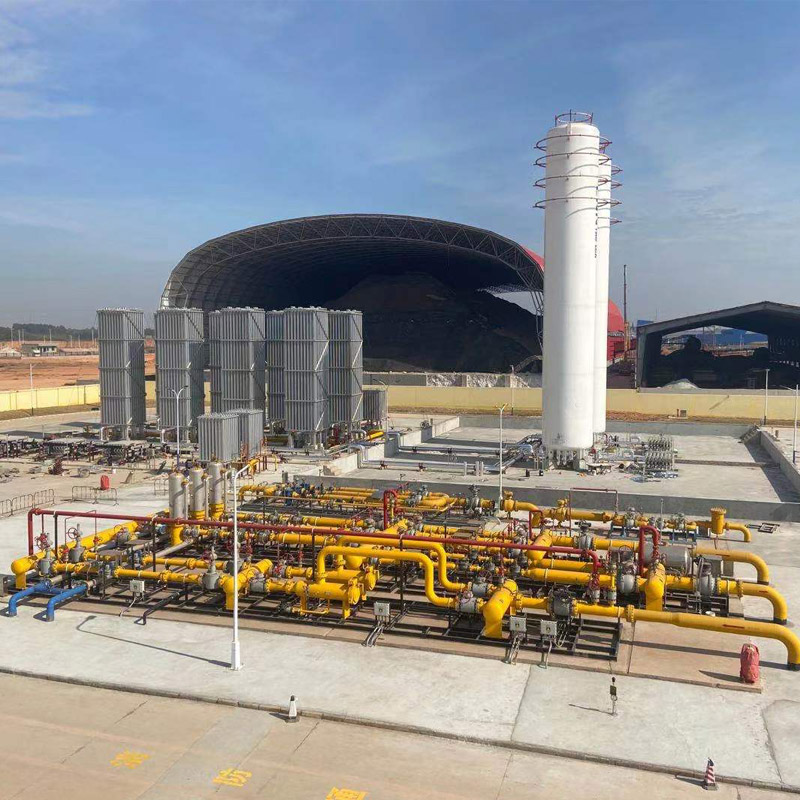
Nov . 22, 2024 02:51
Back to list
gas valve
Understanding Gas Valves Function, Types, and Importance in Safety
Gas valves are critical components in various industries, including residential heating, industrial applications, and even in the automotive sector. They facilitate the control of gas flow, ensuring that it reaches the intended destination safely and efficiently. This article delves into the function, types, and significance of gas valves, as well as the key safety measures that must be adhered to when working with these essential devices.
At its core, the primary function of a gas valve is to regulate the flow and pressure of gas. This could be natural gas, propane, or other combustible gases. Gas valves play a pivotal role in controlling the ignition and operation of gas appliances, ensuring proper combustion and efficiency. A well-functioning gas valve ensures that the right amount of gas flows to the burner, which is crucial for heating systems, water heaters, and cooking appliances.
There are various types of gas valves, each designed for specific applications and operational needs
1. Manual Gas Valves These valves enable operators to open or close the gas flow manually. While simple to use, they require human intervention and are commonly found in residential settings. Manual valves are typically used in emergency shut-off situations or for maintenance.
2. Automatic Gas Valves These valves are designed to automatically regulate gas flow and pressure based on specific conditions. They often come equipped with safety features, such as pressure sensors that shut off the gas supply in emergencies, helping to prevent potentially dangerous situations.
3. Solenoid Valves A subtype of automatic valves, solenoid valves use an electromagnetic coil to open and close the valve. They are commonly used in automation systems where precise control of gas flow is necessary. These valves can be activated by electrical signals, making them ideal for applications requiring remote operation.
gas valve

4. Safety Shut-off Valves These valves play a crucial role in preventing gas leaks and ensuring safety. They automatically shut off the gas supply in the event of a malfunction or if gas is detected in an area where it should not be. Safety shut-off valves are vital in industrial applications, as well as in residential settings where gas appliances are present.
The importance of gas valves cannot be overstated, particularly in terms of safety. Gas leaks can lead to catastrophic explosions, fires, and health hazards. Therefore, having reliable gas valves in place is essential for mitigating these risks. Regular maintenance is also crucial; checking for leaks, replacing worn-out parts, and ensuring that valves operate correctly are all necessary practices.
Safety standards and regulations governing gas valves vary by region, but they typically emphasize the necessity of using certified and tested valves. Regulations often require gas valves to comply with specific performance standards, which ensure they can withstand the pressures and temperatures typical in gas systems.
In addition to adherence to safety standards, awareness of proper installations and operational procedures is vital. Users should be educated on how to recognize the signs of faulty valves, such as unusual sounds, gas odors, or fluctuations in pressure. In these instances, immediate action should be taken to turn off the gas supply and call in a professional.
Furthermore, it's worth noting that when gas valves are being installed or replaced, only qualified professionals should handle the task. Proper training and certification ensure that the installation meets safety standards and functions correctly. Improper installation can lead to significant safety risks, including leaks and unsafe operating conditions.
In conclusion, gas valves are an integral part of both industrial and residential applications, emphasizing the necessity for proper function and maintenance. Their ability to control the flow of gas is crucial for efficient operation, but it is their role in safety that truly underscores their importance. With various types available, selecting the appropriate valve for a specific application, combined with regular maintenance and adherence to safety regulations, can help prevent incidents and ensure the safe use of gas systems. As technology advances and the focus on safety increases, the role of gas valves will continue to evolve, highlighting the importance of ongoing education and awareness in this field.
Next:
Latest news
-
Safety Valve Spring-Loaded Design Overpressure ProtectionNewsJul.25,2025
-
Precision Voltage Regulator AC5 Accuracy Grade PerformanceNewsJul.25,2025
-
Natural Gas Pressure Regulating Skid Industrial Pipeline ApplicationsNewsJul.25,2025
-
Natural Gas Filter Stainless Steel Mesh Element DesignNewsJul.25,2025
-
Gas Pressure Regulator Valve Direct-Acting Spring-Loaded DesignNewsJul.25,2025
-
Decompression Equipment Multi-Stage Heat Exchange System DesignNewsJul.25,2025

